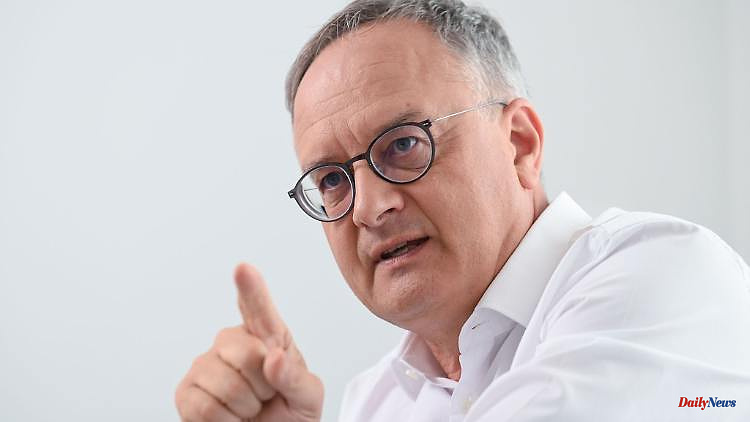At the end of the month, the 9-euro ticket for public transport expires. A nationwide debate has broken out about a possible continuation. The heads of the DGB and SPD in the south-west are in favor of a nationwide annual ticket for 365 euros.
Stuttgart (dpa / lsw) - The heads of the German Trade Union Confederation (DGB) and the SPD in Baden-Württemberg have spoken out in favor of an annual 365-euro ticket as the successor to the 9-euro monthly ticket. This expires at the end of August. "As the DGB, we are in favor of a nationwide 365-euro ticket," said country chief Kai Burmeister of the German Press Agency in Stuttgart. A start of such an annual ticket on January 1, 2023 is realistic. For the financing, the DGB in the southwest is planning a higher taxation of high wealth.
SPD head of state Andreas Stoch welcomed the proposal. "That's a very good suggestion," said Stoch on Sunday. His party has been calling for public transport at affordable prices for years. A 365-euro ticket would be the ideal solution, the federal states should find a quick solution with the federal government. "Where is the contribution of the green-black state government here?" Stoch asked.
The 9-euro ticket brought relief to many people and had a dampening effect on the inflation rate, said DGB man Burmeister. Many people have been won over by the simplicity of the ticket. There have also been more tourist trips - but that is also a form of participation. "It has nothing to do with a free mentality, it's a matter of political wisdom to use the momentum that has now been sparked." Burmeister noted that people in metropolitan areas in particular who could reach their workplace by bus or train benefited from the ticket.
Burmeister made it clear that the 9-euro ticket revealed shortcomings in local public transport. There is a shortage of vehicles and the employees are often working at the limits of their resilience. In order to make the infrastructure fit for a permanent cheap ticket, the DGB proposed a credit-financed public fund at federal level. Burmeister justified the amount of 365 euros a year instead of nine euros a month by saying that public services should also be provided with a corresponding amount of money. In addition, good working conditions must be ensured.
In the past few weeks, a nationwide debate has broken out about whether and how the 9-euro ticket could be continued. The 9-euro tickets are valid in June, July and August and allow unlimited travel on local and regional buses and trains throughout Germany for one month - much cheaper than normal monthly tickets. Federal Finance Minister Christian Lindner (FDP) had rejected funding from the federal budget. He was not convinced of a "free mentality à la unconditional basic income" in local public transport, he had said. These statements also met with criticism.
At the end of July, Baden-Württemberg's Transport Minister Winfried Hermann (Greens) said that "super special offers like the 9-euro ticket" could hardly be financed in the long run. First of all, good local public transport with fair ticket prices must be able to be financed in a stable manner. It is also important to compensate for the growing deficit in local rail passenger transport. The federal government must increase the funds with which the federal states finance public transport.
Recently, several transport associations in the southwest had announced higher ticket prices. The reasons given by the transport associations for the price increases include rising personnel costs and increased costs for diesel and electricity.












